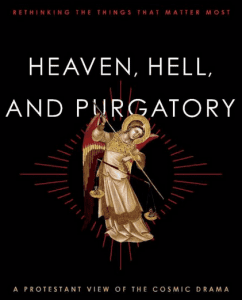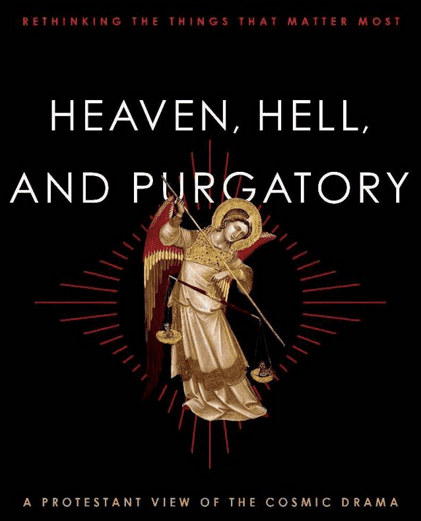 My pastor when I was a teenager often said from the pulpit that if there are tears in heaven, or at the last judgment, it will be the result of realizing how sinful we were or comprehending what we didn’t do and could have done. He said this often and that is why I remember it. Here’s my question:
My pastor when I was a teenager often said from the pulpit that if there are tears in heaven, or at the last judgment, it will be the result of realizing how sinful we were or comprehending what we didn’t do and could have done. He said this often and that is why I remember it. Here’s my question:
Are tears at the last judgment, or even in heaven, a form of Purgatory?
Which of course requires that we define Purgatory, which leads me to Three Models of Purgatory that one finds sketched in Jerry Walls, Purgatory: The Logic of Total Transformation.
Are any of these models of Purgatory compatible with Protestant faith? Would you call the instantaneous sanctification of the believer at death/judgment a kind of purgatory?
The spectrum has two poles: The Satisfaction Model, which focuses on Purgatory as punishment and expiation of sins, the Sanctification Model, which focuses on the need for the Christian to become fully holy and fit for the presence of God, and a combination of both in the Satisfaction/Sanctification Model. (Walls thinks the Sanctification Model is compatible with Protestant theology.)
The big issue is often penance. Penance is seen in some steams of Catholic thought to be satisfaction, and without penance there is still a need for (postmortem) satisfaction. Walls sees this in the Second Council of Lyons (1274).
The Satisfaction Model: Suarez is the main representative. Purgatory purges but the sinner must render satisfaction to achieve justice. This time expiates the debt for sins committed after baptism. In much Catholic thought the Church Militant can help a person in Purgatory through suffrages, Mass, indulgences, prayer, etc. The pain of Purgatory is delay of the beatific vision.
Walls finds major problems for Protestants: in essence, if Christ paid the penalty in justification, then any suggestion that the person must pay renders justification ineffective and diminishes the work of Christ on our behalf.
The Satisfaction/Sanctification Model: here he uses Aquinas and Dante mostly. The punishments or pain of Purgatory are designed by God to reform the will so that it conforms to the will of God. (This is virtue ethics in the postmortem condition, and the person will be made ready over time for the presence of God.) Dante’s views are more oriented toward sanctification without eliminating punishment. But his emphasis is spiritual transformation.
Again, Walls finds too much depreciation of the all-sufficiency of Christ’s work of justification.
The Sanctification Model: he uses three — John Henry Newman (time for the good seed in the hearts of believers to grow into fruition), Justin Bernard (if holiness is required then holiness must be gained; Purgatory is about gaining a holy character), and Richard Purtill (who focuses on enlightenment of our past that grasps in truth our sin and our character in order fully to comprehend the goodness and purity of God).
I said three but he adds another: by David Vander Laan, which argues God’s heaven permits all believers in as they were at death but the omniscient God creates space for those persons to be transformed or to be in heaven without temptation.
Walls thinks the Sanctification Model is compatible with Protestantism because it in no way questions the efficiency of Christ’s work. It simply requires the believer to become holy, however and however long that happens. If at the final judgment or in heaven there are tears, then that pain of regret and remorse and repentance are elements of a Sanctification Model of Purgatory. There is no whiff of satisfaction by humans. Perhaps, he suggests, Purgatory is the ante-chamber to Heaven.










